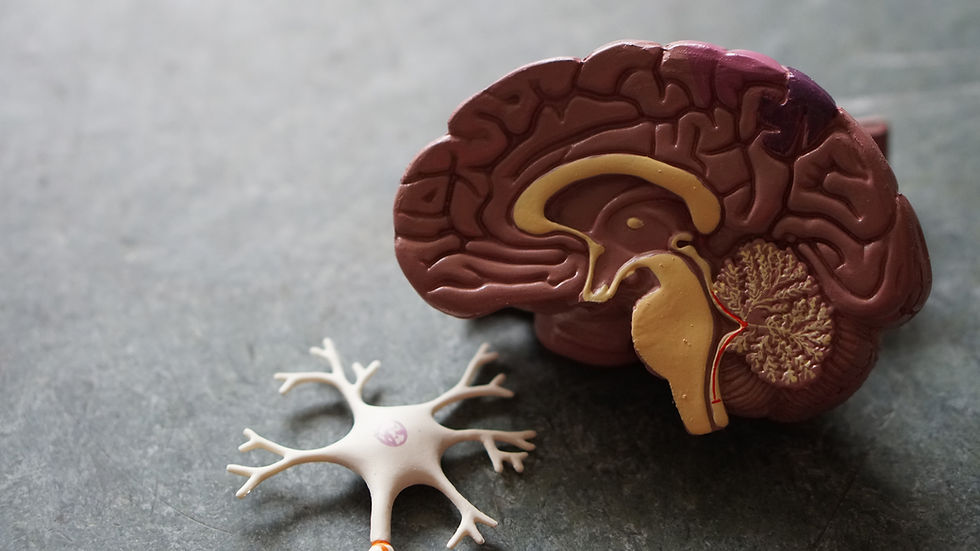Executive Function
- irish061
- Aug 27, 2024
- 3 min read
We hear a lot about executive function these days, but what is it and how does it affect you?

What is executive function?
The term executive function refers to skills and cognitive processes that help you problem-solve, plan, adapt to change and meet goals. The basic areas of executive function are:
Attention control: the ability to focus your attention and concentrate on a specific task
Cognitive flexibility: the ability to shift from task to task or to consider several things at the same time
Cognitive inhibition: the ability to tune out distractions
Inhibition control: the ability to curb impulses to complete a task or maintain appropriate behavior
Working memory: the part of memory that allows you to temporarily hold information for immediate use in solving a problem or performing a task.

People struggling with executive function skills are affected in different ways, but many have trouble with: prioritizing, starting tasks, completing tasks, following directions, changes in routine, remembering things they read, regulating emotions, shifting from task to task, losing their belongings and time-management among other things. (Sound familiar? Don't worry; we all struggle with these things from time to time.)
These symptoms may sound like ADHD to you. That’s because ADHD is an executive function disorder; however, not everyone who has difficulty with executive function has an ADHD diagnosis.
How you can improve executive function.
If you struggle with executive function, there are things you can do to help improve your skills.
Chunking

People with ADHD or executive function difficulties often become overwhelmed when facing a large task, which can easily turn into being frozen and unable to complete the task. When presented with a big project, it’s helpful to “chunk it,” or break it into smaller, more manageable tasks. You can do this by setting smaller goals that lead up to your overall goal. For example, if your big goal is to have an organized closet, try starting with a smaller goal of tackling one shelf each day. Another option is setting a timer for a tolerable amount of time. Try starting with 15-30 minutes and adjust from there. Knowing you only have to work for a set time can help make the project seem doable.
Reward Yourself
It's important to reward yourself for completing small steps toward a larger goal because this will encourage you to continue. Try to identify a reward that matches the task accomplished. So, if you work for 10 minutes, don't let yourself take the rest of the day off. Be kind to yourself, but also be aware that the function of the reward is to motivate you not lead to avoidance of the task. The reward can be anything you like—a milkshake, a 5-minute break to talk on the phone or a new outfit—whatever you think makes sense and will keep you motivated.

Limit Distractions
Minimizes distractions when you are working on your project. Turn off the TV and the ringer on your phone. Don’t just send a quick text or go work on something else and tell yourself you will come right back (because, let's be honest, you probably won't). Stay focused on the task at hand.
Seek Professional Guidance
A mental health evaluation can help determine if you have ADHD or another diagnosis and can identify medications or therapies that may help. Executive function coaches and professional organizers can provide hands-on help and strategies specifically designed for you and your needs.
Healthy executive function is essential for success and happiness in your daily life. Recognizing what it entails and strengthening your abilities can provide improved cognitive health and functioning.



Comments